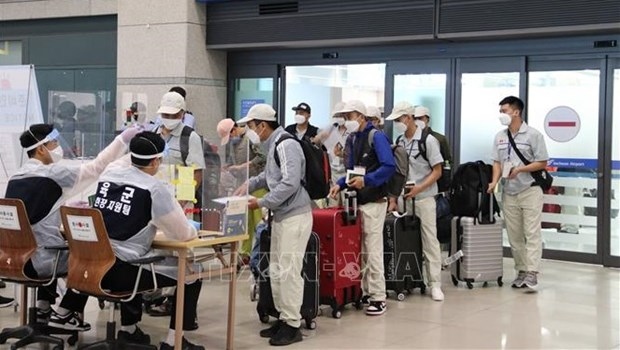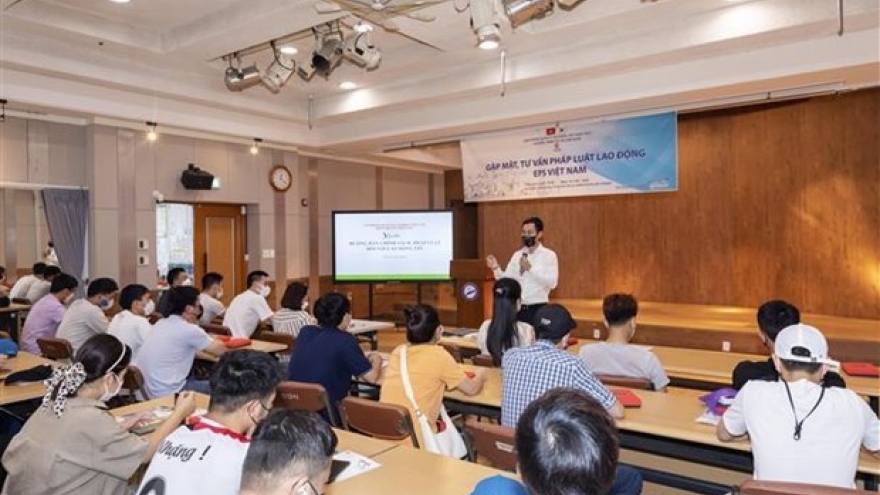Over 1 million Vietnamese labourers sent to work abroad in 10 years
Over 1 million Vietnamese nationals have been sent abroad to work in the past decade, up nearly 40% from the figure recorded in the pre-2012 period, according to a report delivered at a nationwide conference held in Hanoi on August 25.

A hybrid event was organised to review the 10-year implementation of Directive 16-CT/TW dated May 8, 2012 by the Communist Party of Vietnam (CPV)’s Secretariat on strengthening the CPV’s leadership on the management of contracting guest labourers and specialists to work abroad.
Reporting on the directive’s implementation, deputy head of the Party Central Committee’s Economic Commission Do Ngoc An said that legislation on this matter has been improved to align with international laws and practices and Vietnam’s policies on global integration.
The country has exerted greater efforts in vocational and foreign language training for guest workers and specialists as well as provided them with knowledge on their host countries’ legal systems and customs, and career counselling, he said.
There are now 451 organisations and companies providing overseas labour services, doubling that of 2012 when the directive was issued. The number of foreign markets that Vietnamese workers are sent to reached 25 in 2022, compared to just nine in 2013, according to An.
Vietnamese guest workers earned an average income of VND200 million (US$8,536) per person per year, much higher than that of those doing similar jobs in Vietnam, he said, adding the remittances sent by them have contributed to eradicating poverty, expanding business and production, creating jobs and increasing the country’s foreign currency reserves.
In his remarks, Minister of Labour, Invalids and Social Affairs Dao Ngoc Dung urged ministries and local administrations to further enhance regulatory frameworks on the matter. Greater attention should be paid to negotiating with host countries on overseas labour agreements, improving state management on the issue, researching foreign labour supply and demand, and developing a sustainable, flexible and modern labour market.


